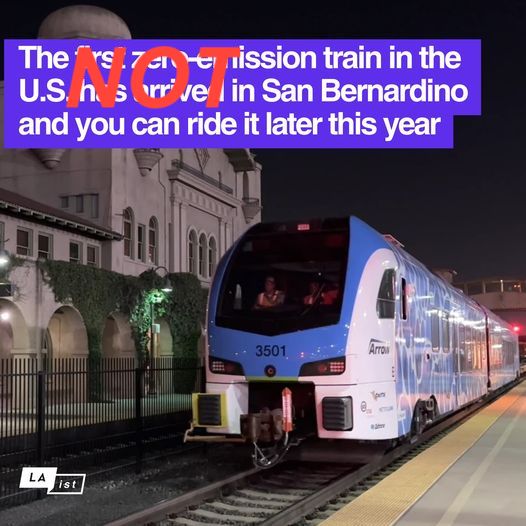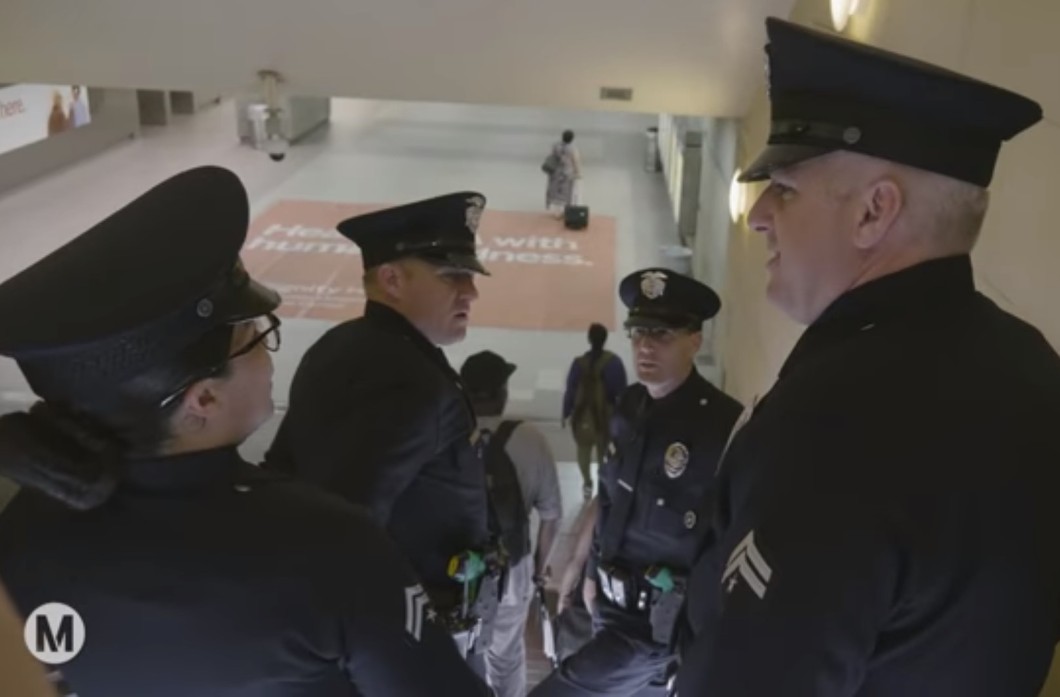On July 14, LAist published an article claiming that the first zero-emission train in the U.S. has arrived in San Bernardino. The new train is a hybrid (hydrogen power and battery) multiple unit, for Arrow line service. Similar headlines had been used in other outlets over the last few days as well.
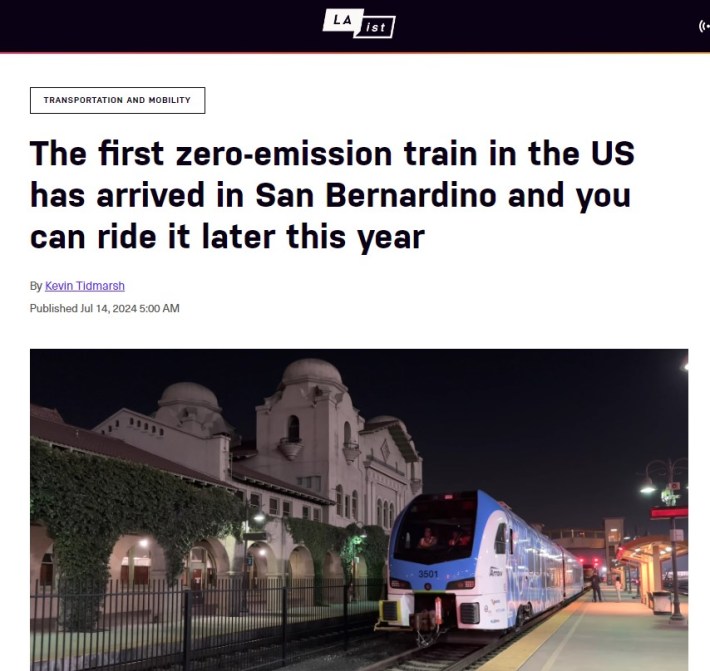
But, as Marc Vucevich of Streets for All wrote in response, the claim is blatantly false.
"Zero-emission trains have been around for over 100 years in the U.S.," he writes. Overhead wire electric trains used to ply the entire Bay Area, from San Francisco to Sacramento and beyond, and Los Angeles' famous Red Cars were electric. SF's Muni uses electricity to power its light rail and many buses as well. Los Angeles' Metro subway and light rail are also powered by electricity. Sacramento's light rail runs on electricity.
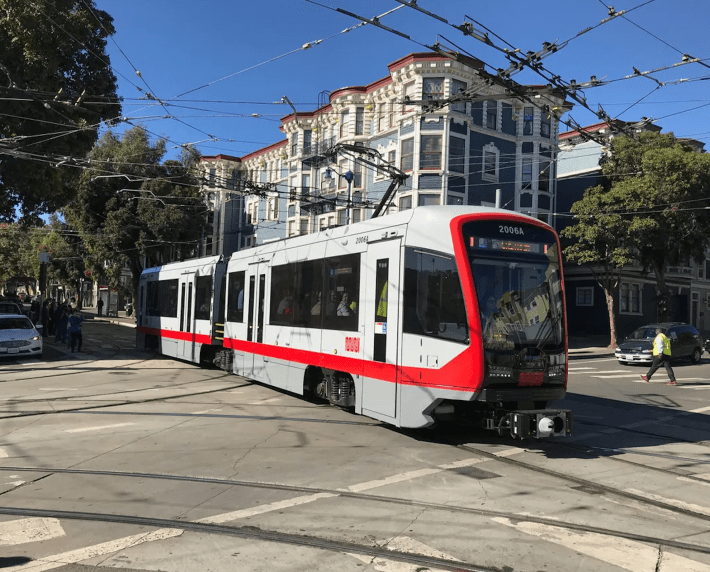
Moreover, Caltrain in the Bay Area is transforming its commuter rail system into a true zero-emission, overhead wire train network. Caltrain is currently testing its essentially completed electric system, and expects to launch faster, greener, more efficient service in September.
Both California High-Speed Rail and the Brightline high-speed rail from Las Vegas will be electric.
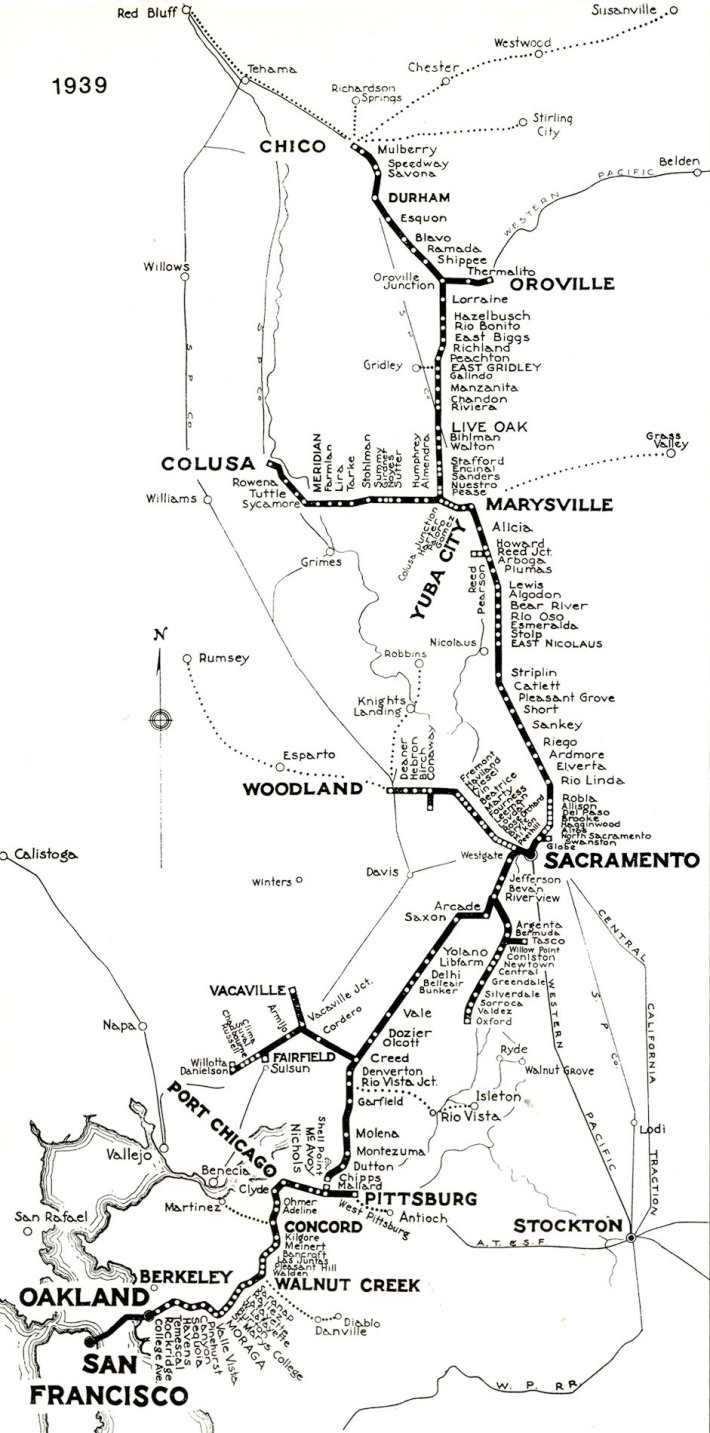
It's not as if LAist is not aware of Southern California's current and past zero emission trains. The site has featured plenty of excellent coverage of Metro (electric) rail and historic (electric) So Cal streetcars.
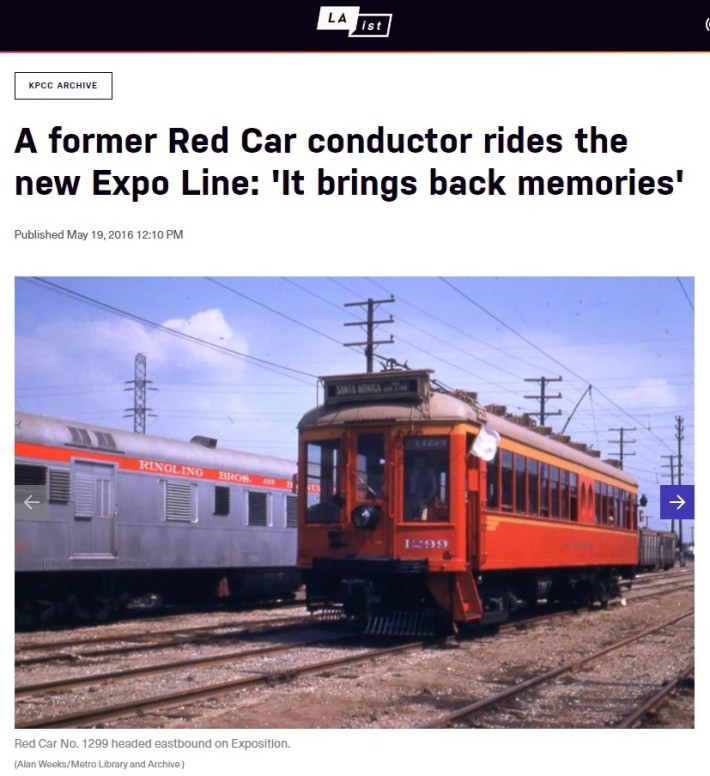
If it's a contest to be the first in the U.S., then San Bernardino's supposed "zero-emission" train lost that race a long time ago.
But even worse: calling hydrogen-powered trains "zero emission" is misleading at best. Hydrogen is cleaner than current diesel engines, but it is a relatively untested technology that is not as efficient as overhead wire electric power. And it relies on fossil fuels - 98 percent of hydrogen is made from fossil fuels with no CO2 emissions control.
LAist and the other outlets that put SBCTA's press release on blast did not mention the polluting sourcing of the hydrogen, and did not acknowledge that hydrogen is promoted by the fossil fuel industry.
There is also the problem with San Bernardino's framing of the project, says Vucevich. "For some time SBCTA has touted this project as innovative rather than what's actually happening: they are trying out an untested technology that every other nation with a developed rail system has serious concerns about and has declined to pursue. This is risky, and a potential waste of taxpayer money - not 'pioneering' or 'innovative' at all."
It's time to stop repeating the false notion that hydrogen power is "zero emission."
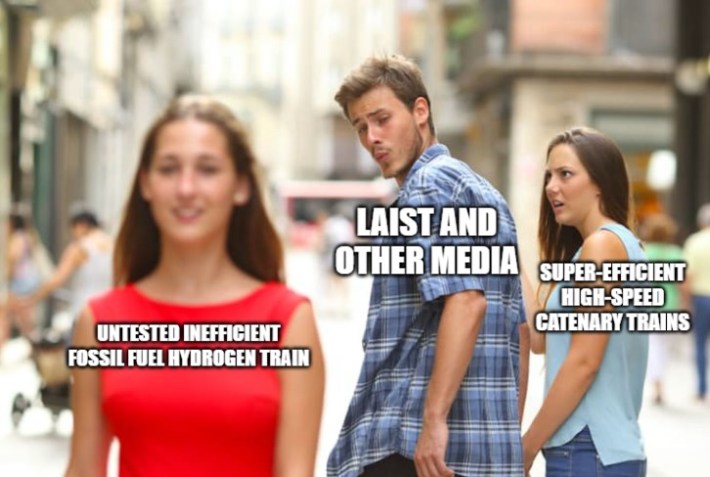
It's also time to step up efforts to implement true zero emission electric rail.
Streets for All, Californians for Electric Rail, and others are working to pass Assemblymember Alex Lee's (D - San Jose) A.B. 2503, which would exempt rail electrification from California environmental review processes. For more background on the push for true zero emission rail, listen to Talking Headway's recent interview with Adrianna Rizzo of Californians for Electric Rail.
